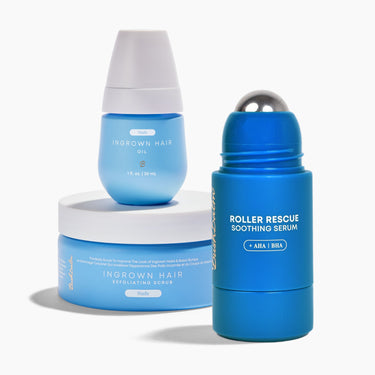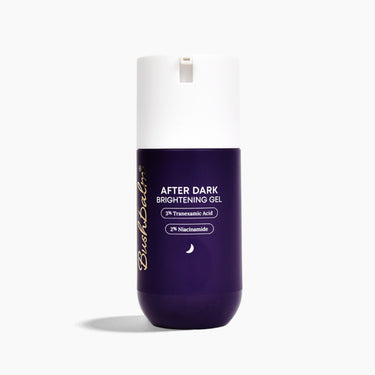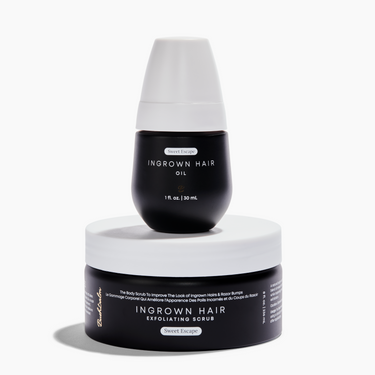How To Properly Shave Your Legs
Shaving can be intimidating at first. After all, you are gliding sharp blades up and down your body. Fortunately, we have some tips and tricks to set you up for success so that you can achieve baby smooth legs. This blog will cover how to get a seamless shave every time!
Your Hair. Your Choice.
Before we get started, I want to emphasis that shaving isn’t something that you should feel obligated to do, EVER. Listen to yourself and prioritize your preference - not the preferences of other.
If you do/are willing to shave, remember that there is no set timeline you have to follow when it comes to removing hair anywhere on your body. Everyone’s hair grows differently and at different times. Whether you have to shave everyday, every other day or once a week, that is completely normal.

How often should you shave your legs?
How often you decide to shave your legs depends on how quickly your hair grows back and the thickness of hair follicles. We generally recommend shaving every two to four days, but it's ultimately your choice. One factor to consider is that if your shaving cadence is consistent you should have less irritation.
Six Simple Steps To Properly Shave Your Legs
Step 1: Soak your legs in warm water
Whether you're in the bath or shower, it's important to give your legs 5-10 minutes to soak in warm water before going in with a razor. This will soften the hair and open up the follicles. You can complete Step 2 through 4 while you wait for your skin to get a thorough soaking and/or your hair care routine.
Note: don't wait too long - otherwise the skin will wrinkle and make it harder to get a close shave. It's best to stick to the 5-10 minutes window.

Step 2. Cleanse the skin
Wash your legs with a soothing shower cleanser. This step will ensure that no dirt and oil seeps into the hair follicles after shaving.
Throughout the day, dirt and oil will naturally accumulate on the surface of the skin. If you shave without properly cleaning the area beforehand, you run the risk of infecting the freshly opened hair follicles. The oil and dirt could potentially seep into your skin causing a red and angry rash to appear in its place.
Step 3. Exfoliate
Exfoliation is a crucial step in the hair removal process - a step that is commonly forgotten. Exfoliation is important for two reasons: 1) softens the skin & hair; and 2) deep cleans the pores.

First, Bushbalm exfoliating scrubs will soften the skin and hair to ensure that the blade glides with ease and the hair is easily cut without tugging or pulling. Using our Sweet Escape or Nude Exfoliating Scrub will ensure that any part of your body that you are shaving will be left extra smooth and soft.
Second, exfoliation works to remove dead skin cells and unclog the pores. Using a combination of nourishing ingredients and essential oils, our sugar scrubs will deep clean out the pores and let your skin breathe. Clogged pores can lead to ingrown hairs. Normally, the hair is supposed to grow up from its root and through the pore (the skin’s opening). When the pore is clogged, the hair strand cannot break through the opening and instead will curl back down underneath the skin’s surface - causing an ingrown hair. Exfoliation is necessary to prevent ingrown hairs because it allows the hair strands to grow with ease.
Step 4. Trim
The final step before going in with a razor should be trimming. The Francesca Trimmer™ will cut the hair down to the optimal length so that your razor does not tug on the skin. You could also completely ditch the blade, and only use an electric trimmer to remove hair from your legs.
Click here to learn about how to use the Francesca Trimmer.

Step 5. Shave
And now for the main event, shaving! Everyone has their own technique and preference when it comes to shaving but we recommend always making sure you: 1) use a moisturizing agent; 2) use a razor with a sharp blade; and 3) shave with the grain.
Lather up!
Shaving on dry skin will cause major skin irritation including razor burn and ingrown hairs. When the skin lacks moisture, it can become rough. Dragging a razor on a rough surface will aggravate the skin. Using a moisturizing agent (whether it's conditioner or shaving cream) will allow the razor to glide effortlessly on the skin and minimize tugging.
Use a sharp blade
Your razor should be fresh and sharp. A sharp blade will remove as much hair as possible with as little strokes as possible. Otherwise, when a razor is dull, it takes more strokes over the same area to remove the unwanted hair. This will irritate the skin and cause micro-abrasions (little cuts) on the surface. It's best to avoid this by replacing your blade every ten shaves.
Shave with the grain!
Move the razor in the same direction that your hair grows. This will minimize tugging and ensure a seamless interaction between blade and skin. Shaving against the grain increases the risk of irritation, nicks and cuts.
Admittedly, shaving with the grain will not give you as close of a shave. So, if you insist on shaving against the grain here's what to do: on the first pass only shave in the direction your hair grows (down the leg). After this step shaving against the direction of growth is much more safe. Reapply your moisturizing agent and shave against the grain.
Note: If you have sensitive skin we recommend only shaving with the grain.
Step 6. Add treatment oil to your legs
Once you get out of the shower, we recommend using our Nude Oil to prevent ingrown hairs and/or using Sweet Escape to hydrate the skin.
Both of these products will soothe your skin after shaving. The difference between the two lies in the scent and level of hydration. The Sweet Escape Oil is ultra-hydrating and has a soft and sweet aroma of tangerine and vanilla, similar to a creamsicle. On the other hand, the Nude Oil is virtually scent-less and is meant to restore your skin’s natural moisture - not add extra moisture.
We recommend the Sweet Escape Collection if you are looking for a yummy scent and ultra-hydrating products. If you prefer a clean scent, the Nude Oil is for you!
For best results, apply the oil within the first two minutes of getting out of the shower as the skin is most absorbent during this time.




















